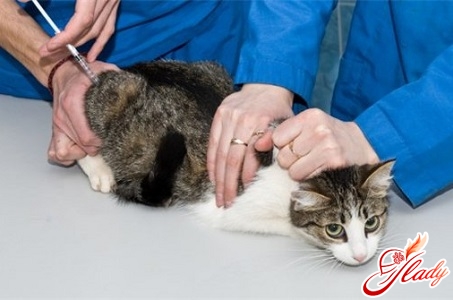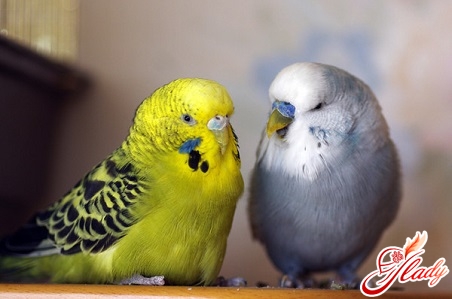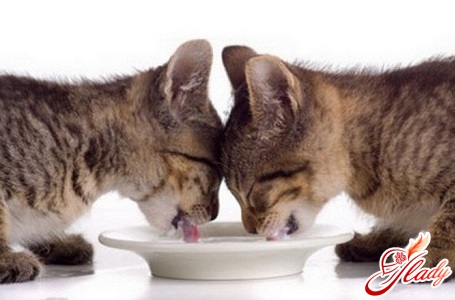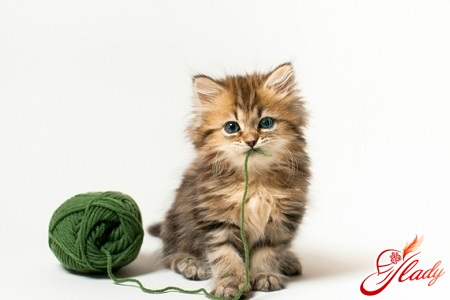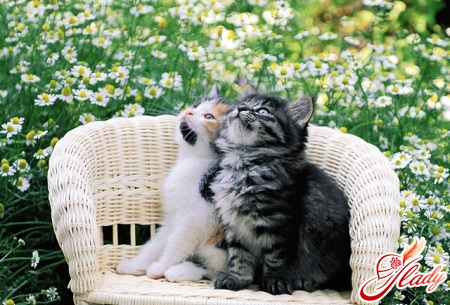 Cats remain the most popular to this daypets all over the world. And one of the main reasons for such popularity is the belief that cats do not require any special care. For example, unlike dogs, they do not need to be walked. Cats, like birds or hamsters, do not need a personal home. And even feeding domestic cats does not cause any difficulties thanks to the huge range of ready-made foods. This is partly true. However, cat care is still necessary. Of course, a cat, as we know, walks on its own and has unique abilities to adapt and survive. But if an animal lives next to a person, then this same person cannot simply take and relieve himself of all responsibility for the one he tamed. A domestic cat lives in hothouse conditions and is deprived of many opportunities, unlike its wild relatives. Therefore, it is necessary to create certain conditions for it to realize its natural instincts. In addition, as a result of breeding work and the lack of natural selection, pedigree cats have significantly reduced immunity. This means that owners should monitor the health of their pets. And the very existence of a person in the house requires the owners to carry out certain hygienic procedures for cats. And what exactly should be the care of a cat, we will try to find out.
Cats remain the most popular to this daypets all over the world. And one of the main reasons for such popularity is the belief that cats do not require any special care. For example, unlike dogs, they do not need to be walked. Cats, like birds or hamsters, do not need a personal home. And even feeding domestic cats does not cause any difficulties thanks to the huge range of ready-made foods. This is partly true. However, cat care is still necessary. Of course, a cat, as we know, walks on its own and has unique abilities to adapt and survive. But if an animal lives next to a person, then this same person cannot simply take and relieve himself of all responsibility for the one he tamed. A domestic cat lives in hothouse conditions and is deprived of many opportunities, unlike its wild relatives. Therefore, it is necessary to create certain conditions for it to realize its natural instincts. In addition, as a result of breeding work and the lack of natural selection, pedigree cats have significantly reduced immunity. This means that owners should monitor the health of their pets. And the very existence of a person in the house requires the owners to carry out certain hygienic procedures for cats. And what exactly should be the care of a cat, we will try to find out.
Conditions of detention
For a comfortable existence in a person's homeCats need three things: a litter box, a scratching post, and a bed or a specially equipped house. The first thing you should buy is a litter box. You need to accustom your cat to a personal toilet from a very young age. Usually, this does not cause any difficulties if the litter box is chosen correctly and is located in a place convenient for the cat. The size of the litter box should be sufficient for the animal to fit in it completely - a cat can ignore a small litter box. The litter box should be located in a secluded place so that the cat does not experience discomfort during such a delicate process. And, of course, it should always have access to its litter box. What you use as filler is also important. It is best to buy special fillers for cat litter boxes - they retain odor well. Cats like sand, but it is considered unhygienic: it does not retain odor, and it sticks to the paws. Some cat owners train their pets to relieve themselves in a litter box filled with scraps of newspaper, and some cats are content even with an empty litter box. A scratching post is also necessary for domestic cats. Any cat at any age will definitely sharpen its claws, and it is impossible to wean it off. Therefore, if you do not want the furniture and walls in your house to be torn apart by cat claws, try to accustom the animal to a scratching post. You can make it yourself or buy it at a pet store. A bed or a special house is also necessary for a cat. However, this is not such a necessary item as a tray or a scratching post. By the way, many domestic cats stubbornly ignore beds and houses purchased or made for them. But most often, cats do not refuse the opportunity to be alone, bask on a soft bed or hide in a house.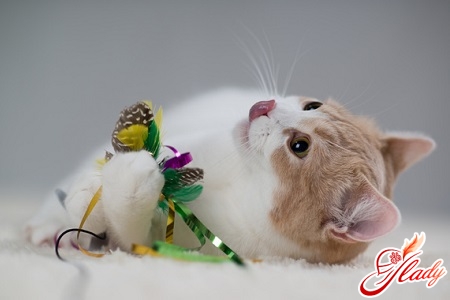
Feeding
Many cat owners do not bother themselvescooking food for their pets and limit themselves to buying ready-made food. And this, in general, is quite acceptable. But those who feed cats from their table expose the animal's health to a certain risk and shorten its life. Remember! What a person cooks for himself is categorically not suitable for feeding cats! Therefore, if you want to feed your cat natural food, be prepared to have to prepare special food for it. A cat's diet should consist of meat (the main part), cereals and vegetables. Raw and boiled meat and poultry, cereal porridge, as well as raw or boiled vegetables are good for cats. You can give cats fruits and fermented milk products. The most suitable meat for cats is beef, chicken, rabbit. You cannot feed cats pork, as well as raw offal and fish. As for fish, it should not become the main source of protein, and it can only be given to cats boiled or steamed. Almost all cereals are well absorbed by the cat's body, so cook porridge for it from oatmeal, barley or buckwheat, wheat or pearl barley. But legumes (peas, beans, lentils) are contraindicated for cats. Vegetables are also necessary for cats, and you can include almost everything in their diet except potatoes. Most often, vegetables are added to porridge based on meat broth. But if your pet is not averse to crunching fresh carrots or cucumbers, then do not deprive her of such pleasure. All low-fat dairy products except sour cream and cheese are also useful for cats. As for fresh milk, it must be included in the diet of a small kitten, but in adult animals it can cause digestive upset. Ready-made dry and wet food can also be given to cats. Just buy only high-quality products, premium food and give them in accordance with the instructions. Do not feed adult animals with food intended for kittens and super-premium food, which can only be given to cats during preparation for exhibitions. A combination of prepared food and natural food is acceptable. Do not forget that very young kittens, pregnant cats and neutered cats require special nutrition. Therefore, make up a menu for them after consulting a veterinarian. Cats of any age and regardless of their feeding regimen should have constant access to clean, fresh water.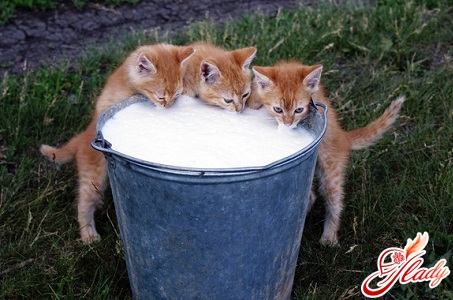
Hygienic procedures
Cat care involves a number of hygienic proceduresprocedures. The fur of animals or the skin of hairless cats require care. In addition, cats need to have their ears and teeth cleaned, and their claws trimmed periodically. More thorough care of kittens is due to their inability to maintain personal hygiene. Therefore, kittens often have their eyes and nose cleaned, their muzzles wiped, and the fur under their tails cleaned. In the future, the animal will learn to cope with all this on its own and will not need your help. But proper care for both small kittens and adult cats involves periodic combing of the fur. Firstly, cats shed, and secondly, this procedure has a beneficial effect on the condition of the fur and the appearance of the animal. At the same time, you may also notice some signs of internal diseases (dandruff, hair loss), infestation of the animal with parasites or fungal infections. Hairless cats require skin care. They need to be regularly bathed in warm water with the addition of mild baby shampoo or tar soap. True, bathing should be done no more than once a week. Cats need to have their ears cleaned periodically, using a cotton swab soaked in a special ear cleaner, and the cavities and grooves of the auricle should be cleaned with cotton swabs. Domestic cats also need their teeth cleaned. But this is only if there is no hard food. A child's toothbrush and unscented tooth powder are quite suitable for cleaning cat teeth. True, recently you can also buy a special toothpaste for cats. The frequency of the procedure depends on the condition of the cat's teeth, but weekly cleaning will be quite enough. Trimming the claws is necessary for those cats that do not have the opportunity to walk outside and grind their claws on hard surfaces. True, the claws are trimmed only when they become too long and cause discomfort to the animal itself. Claws that are longer than normal need to be shortened, and normally cat claws should be arched and not curve downwards too much. Claws are trimmed with manicure scissors or tweezers, shortening them by no more than two to three millimeters.
Health
Caring for a domestic cat is not onlycreating comfortable conditions for it, proper feeding and carrying out hygiene procedures. It is very important to monitor the health of the cat. Young animals are susceptible to all sorts of infections, and with age, the development of internal organ diseases is not excluded. Therefore, firstly, any domestic cat must be vaccinated. Vaccinations are carried out according to a certain schedule recommended by a veterinarian. In addition to scheduled preventive vaccinations, the cat must be vaccinated before moving to the country and if you take it with you on a trip. The cat must be dewormed regularly. Ideally, this procedure should be carried out every season, that is, four times a year. And if your cat walks outside, then perhaps more often. And, of course, it is imperative to regularly conduct preventive examinations at a veterinary clinic. Moreover, this must be done even if the animal looks completely healthy. So do not delude yourself with the hope that cats do not need care, therefore they do not cause absolutely any trouble to their owners. If you are not ready to spend time and money on a pet, then it is better not to have one at all. And if you decide to settle a cat in your home, then always remember that you are responsible for those you have tamed. We recommend reading:




